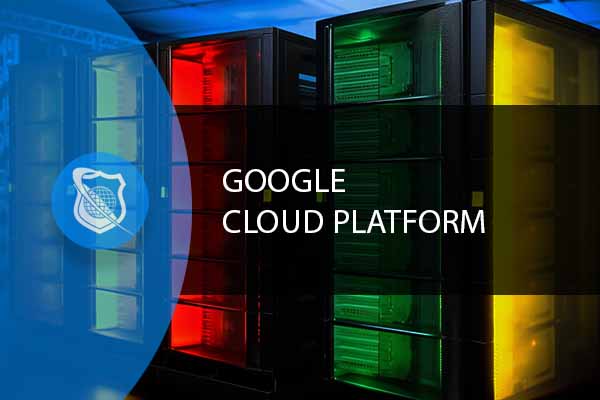GCP Certification is an excellent choice to ensure a thriving career in cloud engineering. Cloud Engineering is a realm where innovation meets scalability, and where businesses find their footing in the modern digital landscape. As organizations migrate to cloud platforms, the demand for skilled Cloud Engineers has skyrocketed, making this career path both lucrative and exciting.
What is a Cloud Engineer?
A Cloud Engineer is a tech professional responsible for the design, implementation, management, and support of cloud services. This includes tasks such as deploying apps, managing cloud infrastructure, and ensuring data security across cloud-based systems. With the proliferation of cloud services, the role of a Cloud Engineer is becoming increasingly vital for companies across all industries.
Cloud Engineers are integral to the development, deployment, and management of cloud infrastructure. Here’s a list of typical duties they perform:
- Designing Cloud Infrastructure: Drafting the architecture of cloud systems to ensure they meet the needs of the business and are scalable, reliable, and secure.
- Cloud Deployment: Implementing full cloud environments, including the setup of virtual networks, machines, and services required for various applications.
- Management and Optimization: Regularly managing and optimizing cloud resources to ensure efficient operation, which includes scaling resources up or down as needed.
- Security Implementation: Ensuring the security of cloud services by setting up firewalls, IAM (Identity and Access Management) roles, and security protocols.
- Disaster Recovery Planning: Creating and testing disaster recovery plans to secure data continuity in the event of a system failure.
- Monitoring and Maintenance: Continuously monitoring cloud systems for performance metrics, potential threats, and setting up alerts for any anomalies.
- Troubleshooting and Support: Responding to technical issues and providing solutions to ensure minimal downtime and smooth operation.
- Automation: Developing scripts or using existing tools to automate repetitive tasks within the cloud infrastructure.
- Cost Management: Monitoring cloud expenses and optimizing resource usage to control costs without compromising on performance or capacity.
- Compliance Adherence: Ensuring cloud services comply with relevant laws, regulations, and standards applicable to the industry and region.
- Collaboration and Communication: Working with software developers, system operators (SysOps), and other IT staff to facilitate smooth operations and deployments.
- Documentation: Creating detailed documentation for cloud architectures, processes, and service catalogs for internal use and compliance purposes.
- Staying Updated: Keeping up-to-date with the latest in cloud technology and certifications to maintain competitive skills in the market.
- Vendor Management: Liaising with cloud service providers for support, service management, and to stay informed about new features and services.
- Training and Mentoring: Providing training to new team members and potentially serving as a cloud subject matter expert within the organization.
- Performance Analysis: Conducting performance testing and tuning for the cloud services and infrastructure to ensure they operate at optimal levels.
By fulfilling these duties, Cloud Engineers play a crucial role in leveraging cloud computing to drive business efficiency and innovation.
Google Cloud Platform
Ready to master GCP Certification? Our novice-friendly Google Cloud Platform Training, led by expert Joe Holbrook, is your gateway to success. Gain practical knowledge and become a top-notch cloud engineer. Act now!
The Path to Becoming a Certified Cloud Engineer
Embarking on a journey to become a certified Cloud Engineer involves a blend of education, hands-on experience, and a clear understanding of various cloud services. Certifications play a crucial role in validating your skills and knowledge in the cloud domain, with Google Cloud Platform (GCP) certification being one of the most sought-after credentials.
Why Choose GCP Certification?
Google Cloud Platform stands tall among the leading cloud service providers, renowned for its highly scalable and reliable infrastructure. GCP certifications are designed to demonstrate your expertise in Google Cloud technology and help you stand out in the competitive tech industry.
GCP Certification Path
The path to GCP certification can begin with the Associate Cloud Engineer certification, perfect for beginners, and progress through Professional Cloud Architect, Data Engineer, and DevOps Engineer certifications, to name a few. Each certification focuses on different aspects of Google Cloud and requires a deep understanding of specific services and solutions.
The GCP (Google Cloud Platform) Certification Path is designed to validate your expertise in cloud architecture, data and machine learning, and application development. Here’s a breakdown of the various levels within the GCP Certification Path:
1. Associate Cloud Engineer
Summary: This certification is aimed at individuals who are new to cloud technology or GCP. It’s the foundational level for GCP certifications and focuses on the fundamental skills of deploying, monitoring, and maintaining projects on Google Cloud.
Expected Experience: No specific prerequisites, but having some hands-on experience with GCP is beneficial.
Knowledge: Understanding of GCP core services and how they affect cloud solutions. Ability to use the Google Cloud Console and the command-line interface to perform common platform-based tasks.
Valuable Information: This certification is great for beginners and can serve as a stepping stone for professional-level certifications.
2. Professional Cloud Architect
Summary: This certification demonstrates your ability to design, develop, and manage robust, secure, scalable, highly available, and dynamic solutions to drive business objectives.
Expected Experience: At least one year of hands-on experience with GCP and a thorough understanding of cloud architecture and Google technology.
Knowledge: Expertise in designing and planning cloud solution architecture, ensuring solution quality, managing infrastructure, and advising stakeholders based on best practices.
Valuable Information: It’s recognized as one of the highest-paying certifications and is ideal for those looking to validate their advanced technical skills and expertise.
3. Professional Data Engineer
Summary: This certification is intended for professionals responsible for designing, building, analyzing, and optimizing data systems with GCP.
Expected Experience: Experience with data processing technologies and a good understanding of databases and machine learning.
Knowledge: Skills in designing and maintaining data processing systems, ensuring data quality, and leveraging machine learning to solve business challenges.
Valuable Information: It’s suitable for individuals who want to showcase their abilities in transforming businesses through data-driven decision-making.

Google DevOps Engineer Career Path
Targeting the Google Cloud Platform (GPC), this DevOps Engineer training series provides students with both broad and in-depth content designed to ensure you succeed in the role of a Google DevOps Engineer.
4. Professional Cloud Developer
Summary: This certification targets experienced developers who build scalable and highly available applications using GCP services.
Expected Experience: Strong experience in developing and maintaining cloud-native applications.
Knowledge: Proficiency in at least one programming language and a deep understanding of GCP services related to computing, data storage, and security.
Valuable Information: This credential is valuable for developers looking to prove their cloud expertise in a competitive job market.
5. Professional Cloud Network Engineer
Summary: It validates one’s expertise in implementing and managing network architectures in GCP.
Expected Experience: Practical experience with GCP networking services and a solid background in network optimization and security.
Knowledge: Ability to design, plan, and prototype a GCP network, optimize network resources, and manage network security.
Valuable Information: Ideal for those who have a keen understanding of networking and are looking to specialize in the networking aspect of cloud services.
6. Professional Cloud Security Engineer
Summary: This certification confirms your proficiency in designing and implementing a secure infrastructure on GCP.
Expected Experience: A strong background in IT security and experience with GCP security controls.
Knowledge: Familiarity with GCP security best practices, understanding of security protocols, and the ability to ensure compliance with security and privacy regulations.
Valuable Information: It’s highly regarded by organizations prioritizing cloud security, making it valuable for career advancement in this area.
7. Professional Machine Learning Engineer
Summary: This certification demonstrates your ability to design, build, and productionize machine learning models to solve business challenges using GCP technologies.
Expected Experience: Experience with machine learning algorithms and models, as well as data engineering concepts.
Knowledge: Expertise in ML model development, including problem framing, data preparation, model training, deployment, and performance tuning.
Valuable Information: It’s a perfect fit for those looking to leverage AI and machine learning in cloud computing solutions.
8. Professional Collaboration Engineer
Summary: This certification assesses your skills in transforming business objectives into tangible configurations, policies, and security practices as they relate to users and content.
Expected Experience: Proficiency in using G Suite to create secure and productive cloud solutions.
Knowledge: Ability to manage mail routing, secure data access, and user policies.
Valuable Information: This is a unique certification focusing on collaboration tools and services in the cloud, ideal for specialists in this domain.
Each level of the GCP Certification Path is designed to validate different aspects of cloud expertise, and obtaining these certifications can help you gain credibility, improve job prospects, and often command higher salaries. It is advisable to choose a path that aligns with your career goals and professional interests.
Choose Your IT Career Path
ITU provides you with a select grouping of courses desgined specfically to guide you on your career path. To help you best succeed, these specialized career path training series offer you all the essentials needed to begin or excel in your choosen IT career.
Understanding the Costs of Google Certifications
Investing in a GCP certification comes at a monetary cost, which varies depending on the certification level and specialization. However, it’s important to consider this as an investment in your professional development that can potentially lead to higher salaries and better job opportunities.
Regarding the exam costs associated with GCP certifications, they vary by level and region but are generally as follows:
- Associate Cloud Engineer: Approximately $125 USD
- Professional Cloud Architect: Approximately $200 USD
- Professional Data Engineer: Approximately $200 USD
- Professional Cloud Developer: Approximately $200 USD
- Professional Cloud Network Engineer: Approximately $200 USD
- Professional Cloud Security Engineer: Approximately $200 USD
Please note that these costs are subject to change and it’s best to check the official Google Cloud certification page for the most up-to-date pricing. It’s also important to consider that prices may vary slightly by country due to local taxes and exchange rates.
Beyond Certification: Continuous Learning and Career Advancement
Achieving a certification is only the beginning. The cloud industry is dynamic, with new technologies and best practices emerging regularly. Stay ahead by engaging in continuous learning and hands-on practice. Join cloud communities, attend webinars, and stay connected with industry trends to keep your skills sharp.
Conclusion: Launching Your Cloud Engineer Career with GCP Certification
Embarking on a career as a Cloud Engineer with a GCP certification can open many doors. It demonstrates your commitment to professional growth and your expertise in one of the most innovative cloud platforms. By following the steps outlined in this blog and committing to continuous learning, you’ll be well on your way to a successful career in cloud engineering.
Key Term Knowledge Base: Key Terms Related to GCP Certification and Cloud Engineering
Understanding key terms related to GCP Certification and Cloud Engineering is essential for professionals aiming to excel in this dynamic and fast-evolving field. This knowledge base will help you grasp the fundamental concepts and technologies that underpin cloud engineering, particularly within the Google Cloud Platform (GCP) ecosystem. Mastery of these terms not only prepares you for certification exams but also equips you with the language and concepts needed to navigate and excel in cloud-based projects and environments.
| Term | Definition |
|---|---|
| GCP (Google Cloud Platform) | A suite of cloud computing services offered by Google that runs on the same infrastructure that Google uses internally for its end-user products. |
| Cloud Engineer | A professional responsible for designing, implementing, managing, and supporting cloud services. |
| IAM (Identity and Access Management) | A framework of policies and technologies for ensuring that the right users have the appropriate access to technology resources. |
| Virtual Machines (VMs) | Software emulations of physical computers that run an operating system and applications as if they were physical hardware. |
| Cloud Deployment | The process of deploying applications, services, or databases on a cloud platform. |
| Disaster Recovery | Strategies and processes for data backup and recovery to protect against data loss in the event of a disaster. |
| Automation | The use of technology to perform tasks with reduced human assistance, often used in cloud computing to streamline operations. |
| Compliance | Adherence to laws, regulations, and guidelines in the context of cloud services and data protection. |
| Scalability | The ability of a cloud system to handle increasing amounts of work, or its potential to be enlarged to accommodate that growth. |
| High Availability | A design approach and associated practices that ensure a certain absolute level of operational performance and reliability during a given period. |
| Data Encryption | The process of converting data into a code to prevent unauthorized access. |
| Load Balancing | The process of distributing network or application traffic across multiple servers to ensure reliability and performance. |
| Microservices | An architectural style that structures an application as a collection of small, autonomous services modeled around a business domain. |
| API (Application Programming Interface) | A set of protocols and tools for building software and applications, enabling different software entities to communicate. |
| DevOps | A set of practices that combines software development (Dev) and IT operations (Ops) to shorten the systems development life cycle and provide continuous delivery. |
| Containerization | A lightweight alternative to full machine virtualization that involves encapsulating an application in a container with its own operating environment. |
| Kubernetes | An open-source platform for automating deployment, scaling, and operations of application containers across clusters of hosts. |
| Cloud Security | A set of policies, controls, procedures, and technologies that work together to protect cloud-based systems, data, and infrastructure. |
| Serverless Computing | A cloud computing execution model in which the cloud provider runs the server, and dynamically manages the allocation of machine resources. |
| Big Data | Large or complex data sets that traditional data processing applications are inadequate to deal with. |
| Machine Learning | A subset of artificial intelligence (AI) that provides systems the ability to automatically learn and improve from experience without being explicitly programmed. |
| Data Lake | A storage repository that holds a vast amount of raw data in its native format until it is needed. |
| Cloud Native | A term used to describe applications that are specifically designed to run in the elastic and distributed nature provided by cloud computing. |
This glossary provides a foundation for understanding the key concepts and technologies integral to cloud engineering and GCP certification. Familiarity with these terms will assist you in navigating and mastering the complexities of cloud computing environments.
Frequently Asked Questions Related to GPC Certification
What is the value of getting GCP certified?
Getting GCP certified validates your expertise in using Google Cloud technology and demonstrates your ability to help transform businesses with Google Cloud solutions. It can enhance your career prospects, potentially lead to higher earnings, and provide you with a competitive edge in the industry.
How long does it take to prepare for a GCP certification exam?
The preparation time can vary widely based on your existing experience and familiarity with GCP services. For those new to the platform, it could take several months of study and hands-on practice. For those with extensive experience, it might take a few weeks of focused study on the specific areas covered in the exam.
Can I take GCP certification exams online?
Yes, GCP certification exams can be taken online. Google offers the option to take the certification exam from a remote location under virtual supervision, provided you meet the technical and environment requirements set forth for online exams.
What happens if I fail a GCP certification exam?
If you fail a GCP certification exam, you can retake it after waiting 14 days. Note that there’s a limit on the number of attempts you can make in a year, and each attempt requires paying the exam fee again. It’s important to use the time between attempts to prepare thoroughly based on the feedback provided.
Does GCP certification expire, and how do I recertify?
GCP certifications are valid for two years from the date of certification. To maintain your certification status, you must pass the recertification exam. The recertification process ensures that you remain up-to-date with the latest Google Cloud technology and best practices.


























